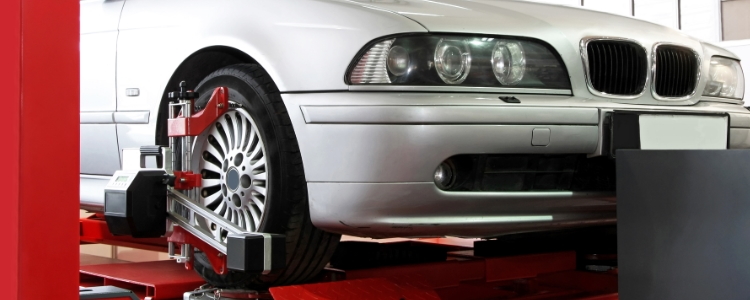When you're considering an extended warranty on your car loan, it's important to weigh the pros and cons and decide whether you're OK spending money upfront that you might not see a return on for years. What's peace of mind worth to you?

Does an Auto Warranty Really Save You Money?
Spend Now, Save Later?
Yes, it's possible for an auto warranty to save you money on repairs over the life of your vehicle, but only if you need to use it. Often, warranties provide a borrower with a sense of safety knowing that certain things may be covered with no up-front cost if they break down. However, warranties can vary a lot, and many of them don't cover everything.
Another key factor to consider in purchasing an auto warranty is the state, age, and condition of the car you’re looking to purchase. If you're financing a brand new vehicle, it typically comes standard with a warranty backed by the manufacturer. It may make more sense to purchase a third-party extended warranty if you're buying a used car, even if you don’t need the coverage right away.
There are pros and cons to getting a vehicle warranty altogether, and arguments can be made that when you purchase your extended warranty matters, too.
New Car Warranty vs Extended Service Contracts
Auto warranties aren't a blank check when it comes to covering every possible thing that could go wrong with your vehicle, so it's very important to know what's included in your coverage.
 New car warranties are typically included in every purchase of a brand new vehicle, courtesy of the automaker. These typically cover at least three years or 36,000 miles, whichever comes first, but manufacturer warranties can vary a lot. For instance, Chevrolet offers a 60,000 powertrain warranty on all new vehicles, but not a bumper-to-bumper warranty. So, if your transmission goes, or you have engine trouble, you're covered. However, if something else breaks unexpectedly – such as a hood latch, or a console knob – you're on your own for the repairs.
New car warranties are typically included in every purchase of a brand new vehicle, courtesy of the automaker. These typically cover at least three years or 36,000 miles, whichever comes first, but manufacturer warranties can vary a lot. For instance, Chevrolet offers a 60,000 powertrain warranty on all new vehicles, but not a bumper-to-bumper warranty. So, if your transmission goes, or you have engine trouble, you're covered. However, if something else breaks unexpectedly – such as a hood latch, or a console knob – you're on your own for the repairs.
Extended warranties, or used car service contracts, can have a lot more variance to their coverage than manufacturer warranties because they're offered by third-parties. These are typically offered to you at the dealership when you're finalizing your contract, along with other dealer add-ons and trim options. Depending on the car you're financing, and whether there's any of its original warranty left, this could be the perfect time to grab that peace of mind. However, if you're confident in the condition of the vehicle, and you've had it inspected by a certified mechanic, you can choose to wait and purchase a warranty later.
Timing Matters in Warranty Purchases
You may actually end up saving a little (or a lot!) of money if you wait to purchase an extended warranty for a used vehicle. It may seem like an easy choice or be something you don't want to have to remember to do later, but adding a service contract to your auto loan right away could mean paying more interest charges.
When you accept dealer add-ons such as an extended warranty as part of your auto financing contract, those charges are typically rolled into your loan so that you don't have separate payments. However, adding these extras increases the amount you finance unless you pay it right away. The more money you borrow, the more there is for interest to accrue on, and the more you pay overall.
By skipping the extras up front, and adding an extended warranty when it becomes more likely you're going to need repairs, you're not paying unnecessary interest charges. This can be especially helpful if you're dealing with poor credit. Bad credit borrowers tend to qualify for higher interest rates which cost you more when you borrow.
Pros and Cons to Vehicle Warranties
Whether or not it saves you money now or later, it's worth it to consider the pros and cons of getting an auto warranty. Remember, a new car comes with coverage, and so do most certified pre-owned (CPO) vehicles, but it's typically up to you whether or not to purchase an extended service contract for a used car.
Possible pros include:
- Peace of mind
- Possible money savings on repairs and interest charges
- A warranty could increase resale value since the policy typically goes with the car, not the driver
Possible cons include:
- You may never need the coverage you paid for
- Coverage varies a lot – read the exclusions in your contract very carefully
- You may not be able to use your coverage until a certain date or be restricted to specific dealerships or mechanics for services
Other Warranty Factors to Consider
For an auto warranty to really save you money in the long run, it's going to depend on the type of warranty coverage you have, and the kind of repairs you need to cover. Buying an expensive warranty policy at the dealership may not seem worth it if the only thing that you use it for is one small, inexpensive fix. However, if you need an expensive repair – a new engine, fuel pump, or transmission, perhaps – you may find yourself saving a ton of money overall.
There are several other factors that can play into whether a warranty can save you money:
- The type of vehicle you're financing – When you drive a domestic vehicle, an older used model, or a vehicle that's known for holding its value, a warranty is likely to be helpful with standard powertrain coverage. Bumper-to-bumper coverage also helps, but may not cover certain components of all vehicles. If you drive an expensive luxury car an extended service contract may not contain enough coverage to make it worth your while.
- The condition of your car – If you're driving a vehicle that's in pretty decent mechanical shape and doesn't seem to be falling apart due to age, it may not make sense to pay for a warranty that you aren't going to use. But if you have a car that's seen some wear and tear over the years, or that's getting up there in age (about five years old or older) you may see greater saving by having a warranty.
- What the warranty covers – Again, coverage can vary a lot when it comes to extended warranties. Before you agree to take one on you have to be sure to know what's covered. Powertrain and bumper-to-bumper are the most common forms of coverage, but they may not include any coverage for electrical or computer issues, which can be detrimental considering today's more technologically advanced vehicle features.
- The deductible – Warranties act like additional insurance coverage, and so in many cases, you need to pay a deductible just like you would for using your auto insurance policy. If you have a high deductible or have to pay out of pocket in order to be reimbursed through your warranty plan, the cost may not be worth the savings or peace of mind.
Ready to Consider Coverage on Your Next Car?
If you think an auto warranty is the right move for your next vehicle, remember that you can purchase it at any time on a used car. New and CPO cars come standard with coverage at no additional cost to you upfront (though these vehicles tend to be more expensive).
When you need a car, and bad credit is standing in the way of your next auto loan, we want to help. Here at Auto Credit Express, we've amassed a nationwide network of special finance dealerships that can help consumers with bad credit, no credit, and even bankruptcy. So, if you're ready to get your next vehicle without the hassle of searching all over town, start right here.
Simply fill out our no-obligation car loan request form. It only takes minutes, it's completely free – get started right now!

Senior Automotive Financing Editor
Meghan has been writing professionally for over 25 years. She is expertly versed in automotive special financing and pricing analysis, having published hundreds of articles on Auto Credit Express and its sister sites, CarsDirect, and The Car Connection. Read more
Suggested Posts For You
Receive Free Updates
Get the latest credit tips, resources and advice delivered straight to your inbox.













